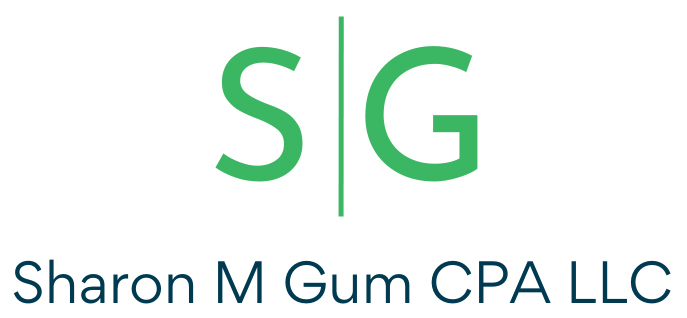The distinction between an “employee” and an “independent contractor” is more than just a label; it carries significant legal and tax implications for your business. The IRS has specific criteria to determine a worker’s status, primarily focusing on the level of control and independence.
Form W-2: For Employees
What it is: Form W-2, Wage and Tax Statement, is issued to employees. It reports the wages paid to an employee and the federal, state, and local taxes withheld from their paychecks throughout the year.
Who is an Employee (W-2)? Generally, an employee is someone whose work is controlled by the business, meaning you direct what work needs to be done and how it should be done. Key indicators include:
- You set their work hours and location.
- You provide the tools and equipment for their work.
- They receive benefits like health insurance or paid time off.
- Their work is an integral part of your business operations.
Employer Responsibilities for W-2 Employees: When you hire W-2 employees, your responsibilities extend significantly beyond just paying their wages:
- Withholding Taxes: You must withhold federal income tax, Social Security tax, and Medicare tax from their wages.
- Paying Employer Taxes: You are also responsible for paying your matching portion of Social Security and Medicare taxes, as well as Federal Unemployment Tax (FUTA) and State Unemployment Tax (SUTA) to the Illinois Department of Employment Security (IDES).
- Illinois State Withholding: As an Illinois employer, you must withhold state income tax (currently a flat rate) from your employees’ wages and remit it to the Illinois Department of Revenue.
- Payroll Administration: This includes managing payroll schedules, processing payments, and maintaining detailed payroll records.
- Providing Benefits: You are typically required to offer certain benefits, such as workers’ compensation insurance.
Deadline for Form W-2: You must furnish Form W-2 to your employees and file Copy A with the Social Security Administration (SSA) by January 31st of the year following the calendar year in which wages were paid.
Form 1099-NEC: For Independent Contractors
What it is: Form 1099-NEC (Nonemployee Compensation) is used to report payments of $600 or more made to non-employees, such as independent contractors, freelancers, and consultants, for services performed for your trade or business.
Who is an Independent Contractor (1099)? An independent contractor is someone who generally controls how and when their work is done. They often provide services to multiple clients, use their own tools, and operate their own business. Key indicators include:
- They control the details of how the work is performed.
- They provide their own tools and equipment.
- They can realize a profit or loss from the work.
- They have multiple clients.
Employer (Payer) Responsibilities for 1099 Contractors: Your responsibilities for independent contractors are considerably different and generally less involved than for employees:
- No Tax Withholding: You do not withhold federal income tax, Social Security, or Medicare taxes from payments made to independent contractors. They are responsible for paying their own self-employment taxes and estimated income taxes.
- No Employer Taxes: You are not responsible for paying FUTA, SUTA, or the employer portion of Social Security and Medicare taxes for independent contractors.
- Form 1099-NEC Issuance: If you pay an independent contractor $600 or more for services in a calendar year, you must issue them a Form 1099-NEC.
- Form W-9 Requirement: Before paying a new contractor, always request a completed Form W-9 (Request for Taxpayer Identification Number and Certification). This provides you with the necessary information (name, address, Taxpayer Identification Number) to properly complete their 1099-NEC.
Deadline for Form 1099-NEC: You must furnish Form 1099-NEC to your contractors and file it with the IRS by January 31st of the year following the calendar year in which payments were made.
The Cost of Misclassification
Misclassifying a worker as an independent contractor when they are, in fact, an employee can lead to severe penalties from the IRS and the Illinois Department of Revenue. These penalties can include:
- Back taxes (employer’s share of FICA, FUTA, SUTA)
- Interest on underpayments
- Fines and penalties for failure to file correctly
- State-level penalties for unpaid unemployment insurance or workers’ compensation contributions.
It’s crucial to get this classification right from the start.
How Sharon M. Gum, CPA Can Help Your Waterloo Business
Understanding the nuances of W-2 and 1099 forms and worker classification can be complex, especially with evolving regulations. At Sharon M. Gum, CPA, we provide comprehensive support to Waterloo businesses, ensuring you stay compliant and avoid unnecessary risks:
- Worker Classification Guidance: We can help you properly determine if your workers are employees or independent contractors based on IRS guidelines.
- Payroll Setup & Management: For your W-2 employees, we offer robust payroll services, ensuring accurate withholdings, timely payments, and proper tax filings (including Illinois state requirements).
- 1099-NEC Preparation & Filing: We handle the preparation and filing of all necessary 1099-NEC forms for your independent contractors.
- Tax Compliance & Planning: We provide ongoing tax advice to help you minimize your tax burden while remaining fully compliant with federal and Illinois state tax laws.
Don’t let the complexities of worker classification and reporting trip up your business. Partner with Sharon M. Gum, CPA, for expert guidance and peace of mind.

Sharon M. Gum, CPA helps businesses throughout Southern Illinois succeed by offering business setup and advisory services, tax preparation, payroll and bookkeeping services. You didn’t start a business to manage payroll and keep track of bank reconciliations. By outsourcing your books to our financial experts, you can get back to doing what you love. With over 30 years working as an accountant in Waterloo IL, Sharon M. Gum, CPA can save you time and money – whether you have 2 employees or 20. We would love to help your business succeed. We are proud of the relationships we’ve built with small business owners throughout Monroe, St. Clair, and Randolph counties.



